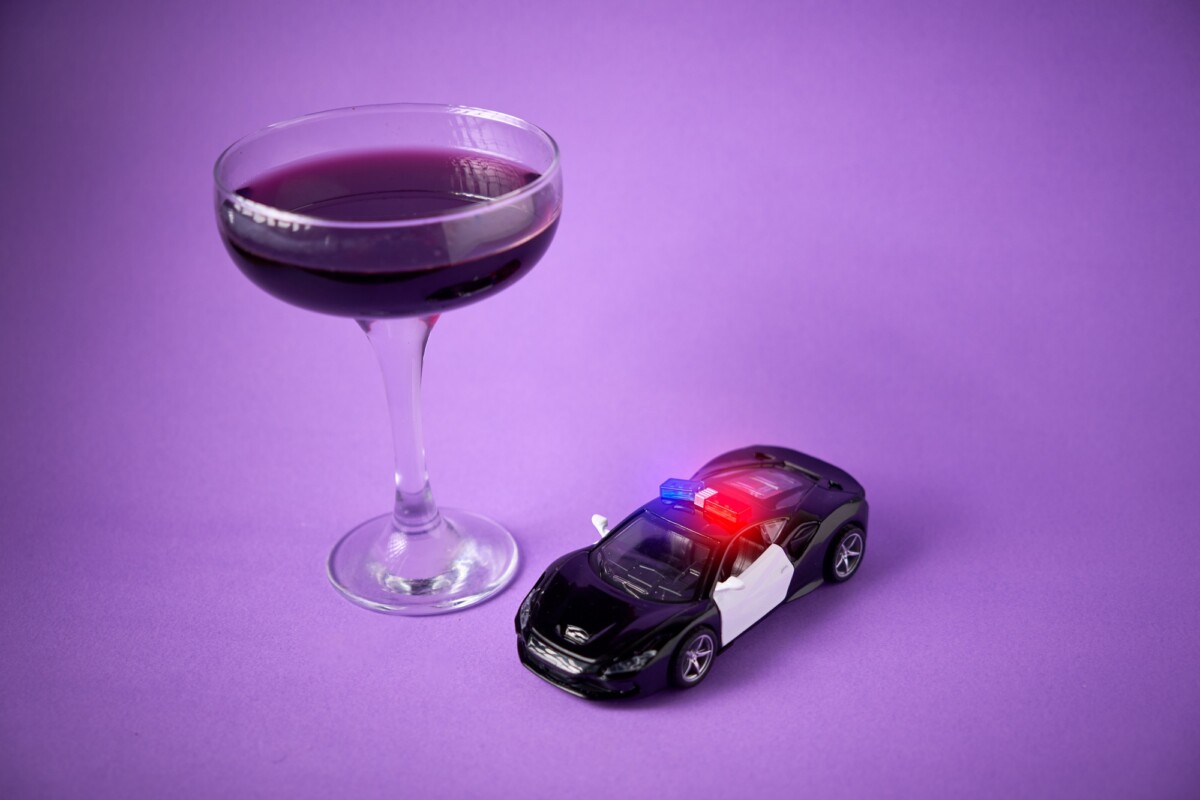What Is a DUI and How Is Drunk Driving Defined? Legal Insights

Understanding DUI laws helps avoid legal trouble or protect your rights if charged. A DUI (Driving Under the Influence) means operating a vehicle while impaired by alcohol, drugs (including prescriptions), or even over-the-counter medications. While laws vary by state, most consider a blood alcohol concentration (BAC) of 0.08% or higher as drunk driving—but you can still face charges with lower BAC if visibly impaired.
Key Elements of a DUI Charge
- Impairment: Police assess behavior (e.g., swerving) even without a high BAC.
- Substances: Illegal drugs, prescriptions, or OTC meds can trigger charges.
- Vehicle Operation: Simply being in the driver’s seat with keys may count as ‘operating’ the vehicle.
How Police Define Drunk Driving
Officers use breathalyzers, field sobriety tests (like walking in a line), or blood tests. Refusing tests often leads to penalties like license suspension.
If You’re Charged:
- Question the stop: Was there a valid reason?
- Review testing: Faulty equipment or procedures can weaken the case.
- Consult a DUI attorney: They help with fines, license issues, or jail time.
Common DUI Penalties
Consequences vary by state and prior offenses:
- Fines: Hundreds to thousands of dollars.
- License suspension: Temporary or permanent.
- Jail time: Possible even for first offenses.
- Probation: Mandatory check-ins or drug tests.
- Ignition interlock: Breathalyzer required to start your car.
Protect Yourself
- Document everything: Police interactions, test results.
- Hire a lawyer: They can challenge evidence or reduce penalties.
- Attend all court dates: Skipping worsens outcomes.
Knowing your rights and acting quickly is crucial. When in doubt, consult a local DUI attorney.
Get a Free DUI Case Review: Secure your future by starting your DUI case review now.
How Is Drunk Driving Defined? Blood Alcohol Content (BAC) and Beyond
Understanding drunk driving laws helps you recognize legal limits and potential consequences. Whether you’re researching or facing charges, this knowledge protects your rights and safety.
Blood Alcohol Content (BAC): The Legal Standard
States typically define drunk driving by Blood Alcohol Content (BAC) levels:
- 0.08%+ for drivers 21+
- 0.04% for commercial drivers
- 0.01-0.02% for underage drivers
Impairment charges can occur even below these limits.
Additional DUI Indicators
Officers assess more than just BAC:
- Slurred speech
- Reckless driving
- Failed sobriety tests
Suspicion of impairment alone can lead to arrest.
Why Definitions Impact Your Case
DUI charges depend on:
- Test accuracy – equipment can fail
- Actual impairment – other factors may mimic intoxication
A DUI lawyer can challenge questionable evidence.
During a Traffic Stop
- Remain polite but non-committal
- Confirm if you’re detained
- Request legal counsel immediately
Every interaction and test result affects your case.
BAC Effects & Myths
- 0.02% impairs multitasking
- 0.05% affects coordination
- Coffee doesn’t lower BAC
- Breathalyzers can’t be fooled
Critical Next Steps
If charged:
- Preserve evidence quickly
- Consult a DUI attorney
Early legal intervention improves outcomes.
DUI laws combine scientific, behavioral and legal factors. Always arrange sober transportation and seek professional help if facing charges.
DUI vs. DWI: What’s the Difference and Why Does It Matter?
Understanding the difference between a DUI and DWI is critical because these terms affect your legal penalties, driving record, and even insurance rates. While both involve impaired driving, their definitions and consequences vary by state—sometimes drastically. DUI (Driving Under the Influence) usually means operating a vehicle while impaired by alcohol or drugs, even if your BAC is under the legal limit. For example, if you show signs of impairment but blow a 0.06% BAC, you could still get a DUI. DWI (Driving While Intoxicated) often indicates a higher level of impairment, typically with a BAC of 0.08% or more. Some states reserve DWI for alcohol cases and DUI for drug-related offenses.
Key Differences
- Terminology: States may use DUI/DWI interchangeably or assign different meanings.
- Severity: DWIs often bring harsher penalties like longer license suspensions.
- BAC Threshold: DUIs may cover lower BAC levels or non-alcohol impairment.
Why It Matters
The charge you face impacts fines, jail time, and driving privileges. A first-time DUI might mean probation, while a DWI could trigger immediate license loss. Always check your state’s laws or consult a DUI attorney to understand your risks.
What to Do If Charged
- Clarify the charge: Ask if it’s a DUI or DWI.
- Document everything: Record test details, time, and location.
- Get legal help: A lawyer can challenge evidence or reduce penalties.
State Variations
Some states use only DUI or DWI, while others (like Texas) distinguish between them—DWI for adults over 0.08% BAC, DUI for minors with any alcohol.
Insurance & Long-Term Effects
- Premiums may surge after a conviction, or coverage could be dropped.
- Job opportunities in driving-sensitive fields may be affected.
Defense Tips
- Question the traffic stop: Was there valid probable cause?
- Challenge test accuracy: Faulty equipment or procedures can help your case. Even a minor charge has lasting consequences. Acting quickly with legal advice is your best defense.
Talk to a DUI Lawyer Now: Call 833-279-1850 for immediate assistance with your drunk driving case.
What Are the Penalties for a DUI Conviction?
What Are the Penalties for a DUI Conviction?
A DUI conviction carries serious, life-altering consequences. Understanding potential penalties helps you prepare, whether it’s your first offense or a repeat violation.
Common DUI Penalties
Penalties vary by state but typically include:
- Fines: $500-$2,000 for first offenses (higher for repeats)
- License suspension: Months to years without driving privileges
- Jail time: Days for first offenses, potentially years for repeats
- Probation: Regular check-ins with strict rules For example, California imposes up to 6 months jail for first DUIs and 1+ years for third offenses.
Long-Term Consequences
Beyond immediate penalties, DUIs bring lasting impacts:
- Insurance hikes: Dramatic premium increases
- Employment challenges: Many employers avoid DUI records
- Ignition interlock: Required breathalyzer devices in some states
Additional Penalties
Some states add:
- Community service: Mandatory unpaid work
- DUI classes: Alcohol/drug education courses
- Vehicle impoundment: Towing and storage fees
Felony DUIs
Severe cases (injuries/multiple offenses) become felonies with:
- Prison sentences: Years instead of months
- Permanent records: Never expunged
- Lost rights: Voting/gun ownership restrictions
Protecting Yourself
If charged:
- Hire a DUI attorney: They may reduce penalties
- Explore diversion programs: Alternative to jail for first offenses
- Document everything: Court dates, fines, communications While prevention is best (don’t drink and drive), immediate legal action minimizes damage if charged.
Explore Your Legal Options: Discover your options with a free DUI lawyer consultation.
How Can LegalCaseReview Help You Navigate DUI Charges?
Facing a DUI charge can feel overwhelming, but you don’t have to navigate it alone. Legalcasereview provides clear guidance and connects you with resources to protect your rights and future. A DUI isn’t just a traffic ticket – it can mean fines, license suspension, or even jail time. Legalcasereview
Understanding Your Options
Legalcasereview helps you:
- Learn DUI laws in your state
- Find expert attorneys to strengthen your case
- Avoid common mistakes like pleading guilty too quickly
Taking Action
Key steps Legalcasereview recommends:
- Interview lawyers (ask about DUI case experience)
- Compare attorney reviews
- Meet deadlines (like DMV hearing requests)
Know Your Rights
Many don’t realize their legal options. Legalcasereview explains:
- Traffic stop rights (field sobriety test refusal)
- BAC test limitations (potential inaccuracies)
- Challenging unfair charges (evidence reviews)
Avoid Mistakes
Critical pitfalls to avoid:
- Rushing guilty pleas (may miss defenses)
- Missing court dates (automatic penalties)
- Poor documentation (record everything post-arrest)
Get Specialized Help
Legalcasereview connects you with:
- Local DUI attorneys
- Free case evaluations
- Evidence checklists (witnesses, receipts)
Act Now
Visit Legalcasereview to:
- Get a free DUI guide
- Consult legal experts
- Find support resources With real examples like John who avoided license suspension by challenging faulty breathalyzer results, Legalcasereview shows how early action makes a difference. Don’t let a DUI derail your life – get the tools to fight back today.
Need Help with a DUI? Contact us at 833-279-1850 or connect with a DUI attorney today.
FAQs for DUI Legal Insights
-
What constitutes a DUI?
A DUI (Driving Under the Influence) is typically defined as operating a vehicle with a blood alcohol concentration (BAC) above the legal limit or while impaired by alcohol or drugs. -
What is the legal BAC limit?
In most states, the legal BAC limit is 0.08% for drivers 21 and older. Lower limits may apply to commercial drivers or those under 21. -
What are the penalties for a DUI?
Penalties vary by state and may include fines, jail time, license suspension, mandatory education programs, and installation of an ignition interlock device. -
How can a DUI affect my insurance rates?
A DUI conviction often results in significantly higher insurance premiums and, in some cases, loss of coverage. -
Do I need a lawyer for a DUI charge?
Yes, hiring a DUI lawyer is strongly recommended to protect your rights and build a strong defense12. -
What defenses are there for a DUI charge?
Defenses may include challenging BAC test accuracy, the legality of the stop, or proving you were not impaired. -
What is an ignition interlock device?
It’s a breathalyzer installed in your vehicle that prevents it from starting if alcohol is detected. -
How long does a DUI stay on my record?
A DUI can remain on your driving record for years and may stay on your criminal record permanently, depending on state law. -
Can I refuse a breathalyzer or field sobriety test?
Refusing a breathalyzer can result in immediate license suspension in many states, regardless of conviction. -
How can I find a qualified DUI attorney?
You can connect with a DUI lawyer through Legal Case Review or call 833-279-1850 for a free consultation2.


